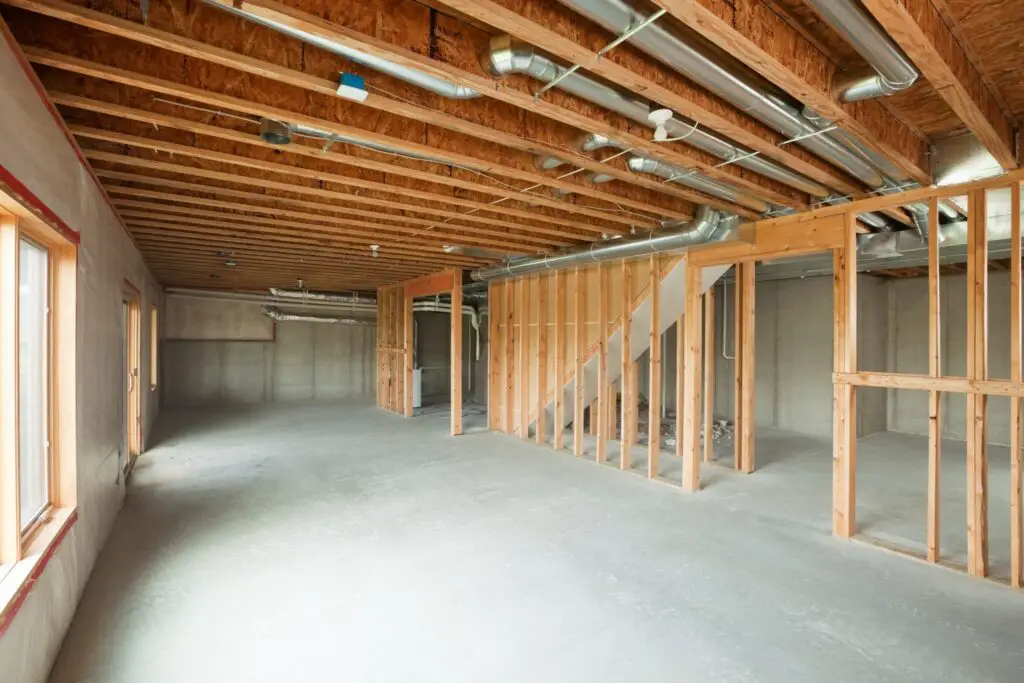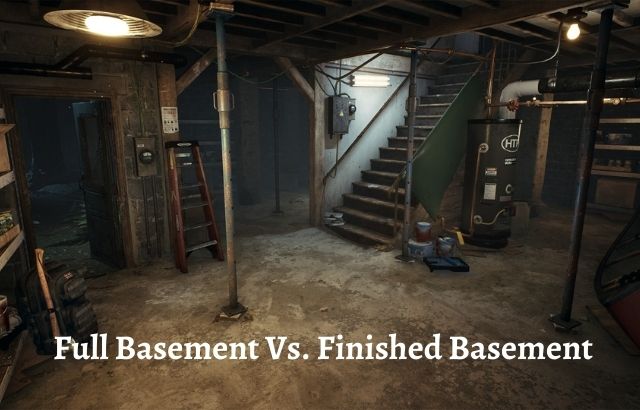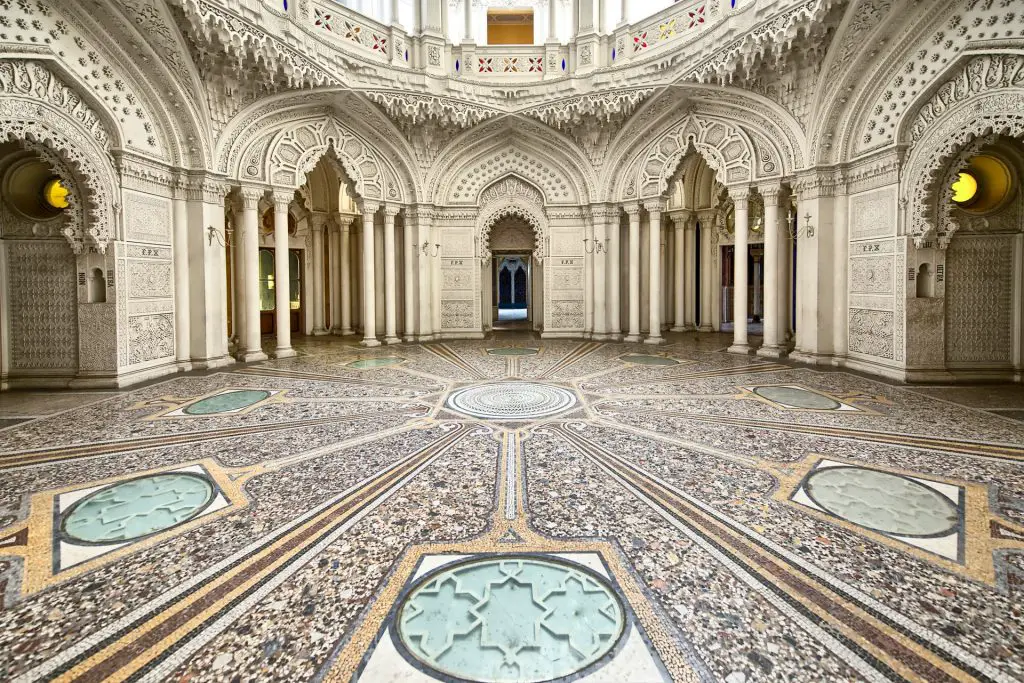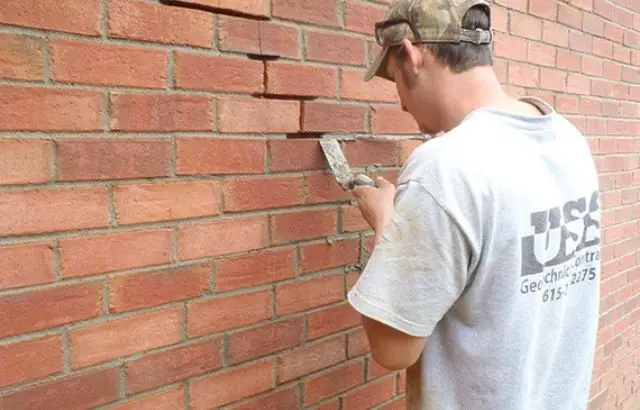There is some confusion about what is considered a finished basement compared to a full basement for basements. However, in most municipalities, building regulations are slightly different for full basements compared to finished basements, so it is important to know the difference. In this article, we will discuss a full basement Vs. finished basement will be discussed.
Full Basement vs. Finished Basement
| Full basement | Finished basement |
| It is not so expensive to buy | It is expensive to buy |
| It offers good storage space | It adds additional living space for the family. |
| A full basement requires less cleaning and regular care. | It requires proper cleaning and regular care. |
| A Full basement is not as valuable as a well-finished basement. | It is more valuable than a full basement |
| They are often used as storage space or residential | They are often used as living spaces. |
Finished basements
These basements are bright, bright spaces with finished walls and ceilings. Finished basements often have carpets, furniture, and recessed lighting.
Finished basements are often used as living spaces but can sometimes be converted into a bedroom.
Advantages:
- Finished basements are generally comfortable, with their connection to a home HVAC system.
- Finished basements add living space to the home.
- These spaces add value to the home, creating additional living space.
Disadvantages
- Poorly finished basement can have moisture problems, leading to mold growth on walls or floors.
- Houses with a finished basement are often more expensive to buy than houses with a full basement.
Basements that have been finished can provide additional living space for large families. Often, parents of older children will turn their finished basement into a family room or lair, where children can socialize without messing.
In addition, the finished basements are separated from the rest of the house. As a result, people who spend time in a finished basement can often do so without worrying that their noise will disturb people in the rooms above.
Full basements
A Full basement refers to a space large enough to stand. This type of basement can be used as residential or storage space and generally increases the home’s value.
They are utilitarian, offering owners plenty of storage space but no extra things like extra living space. The homeowner can find exposed pipes, very small windows, several lighting fixtures, a cold concrete floor, and large spaces in a full basement. Below are the advantages and disadvantages of complete basements.
Advantages:
- Full basements generally offer good storage space.
- Full basements are often a good location for laundry.
- A full basement requires less cleaning and regular care.
Disadvantages
- Full basements may not have been formally watertight, leading to problems such as leaks and mold.
- A Full basement is not as valuable as a well-finished basement.
Benefits of Full Basement in the House

Storage
This is the first feature that comes to mind when discussing the advantages of having a full basement in a home. The basement is located in a house that remains below the level, and you can easily use this space to store your belongings.
Privacy Zone
Everyone needs a little more privacy in their home because there are times when you need a little time to finish homework or concentrate on your work. Also, when you are going through your first years and want to throw a party for your loved ones, a full basement is the best solution. So, you can easily use the basement as a private place for these activities. In addition, the basement will provide you with security in these aspects, and you can be stress-free.
Living space
It is quite natural when you have siblings, and you should share a room with them. However, for a full basement, you can turn part of it into a living space. That way, you can have your own living space, and it will provide you with extra space when there is a guest in your house, and you need a place to stay.
Renting space
Sometimes owning a basement can help increase the value of your home. The cost of your home increases dramatically once you complete the basement. Because once you add a basement to your home, you can easily use it as a living space. You can also rent this space. This will increase the value of your home from seventy to seventy-five percent. It is very helpful to make extra money with your home, but in this case, it is essential to maintain the place’s safety.
Recreation space
Another benefit you will get from a full basement in your home is extra space for recreation. Plus, when you run out of free lawn space for your kids, you can quickly turn the basement into a play area. You can also organize an entertainment system in the basement.
Things to Consider for a Finished Basement
Heating and cooling system
There must be a heating and air conditioning system in the basement to be considered complete. It should be an HVAC system and be like the rest of the house. The window air conditioning does not count as a “finished” basement, nor does the radiator. This is because they are not permanent installations like wall heaters and pedestals.
Flooring
The floor should match the type of flooring in the rest of the house and have a coating. Examples are wood, laminate, tile, and carpet. However, tiles are a great recommendation because basements are flooded, and carpets can develop mold. In addition, laminate floors and wood are destroyed by flooding. Just leaving only concrete or plywood on the floors doesn’t end the basement.
Walls and ceiling
Walls and ceilings should be drywall and finished in the house. In addition, the basement should flow with the rest of the house and be accessible from other parts of the house. An example is a staircase from the second floor to the basement.
Stairs
To be considered a finished basement, the staircase must lead to the basement and be permanent. If a ladder or attic enters the basement, it is not a permanent structure. If stairs lead from the basement to the outside, that’s fine as long as stairs lead into the basement inside the house.
Frequently Asked Questions
What does a full basement mean?
A complete basement is most or all of the upper-level floor space and is usually 7 feet high. Newer homes generally have more basements to make it easier to turn into living space.
Is the finished basement worth it?
A finished basement can increase the value of your property by 70%. Although the basement does not contribute to the overall square footage of the house, this fact is generally irrelevant to homeowners. Finished basements often function as informal living/family rooms, offices, home classrooms, and guest bedrooms.
What value will the finished basement add?
In the United States, on average, building a basement will bring you 70-75% of your investment. So, for example, if you spend $ 1,000 on improvements, it will increase the property’s value by about $7000.
Is the whole basement finished?
Not to be confused with “finished,” a complete basement refers to a space large enough to stand.
Why not finish your basement?
Completing the basement may reduce its resale value if you don’t plan to stay in the house for a long time.
In some cases, a finished basement will earn you more when you sell a house, but generally, it won’t make much of a difference, as long as there are plenty of bedrooms elsewhere in the house.
Conclusion
Before buying a house with a basement, knowing the differences between a finished and a full basement is important. These spaces can be very different from each other. It depends on what suits your lifestyle and your plans for that part of the house. Everyone is different in how they use the area, some for entertainment and some for storage and other purposes.




